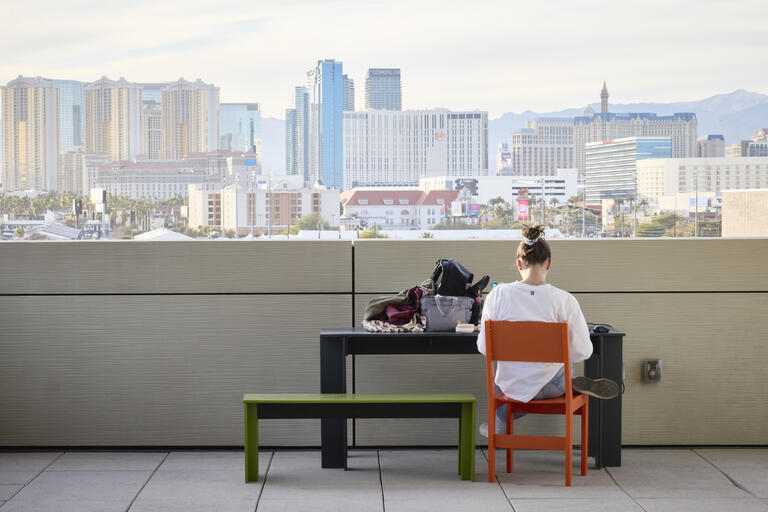Marta Soligo
Biography
Marta Soligo is a sociologist and hospitality professor who serves as the director of tourism research with UNLV's Office of Economic Development. Her work examines various facets of travel and tourism — including culture, sports, and entertainment — through a sociological, social justice, and environmental sustainability lens.
Soligo is the academic lead for the UNLV Tourism Development, Diversification, and Resiliency Initiative — a project that aims to diversify Las Vegas’ tourism economy and its beneficiaries. In particular, the initiative centers around cultural, sports, and medical tourism in Southern Nevada, with a focus on support programs for disadvantaged businesses.
In addition to educating UNLV students as an assistant professor with the William F. Harrah College of Hospitality, the Italy native teaches a University of Bergamo master’s course in Planning and Management of Tourism Systems. She has also offered "Sociology of Leisure," a UNLV course part of the UN World Tourism Organization’s (UNWTO) “Tourism for the Sustainable Development Goals for 2030” program.
Soligo’s interests include tourism and social justice, community development, and immigrant labor within the hospitality industry. Additionally, her sociological research has focused on a wide range of themes, such as film-induced tourism, dark tourism (travel to places historically associated with death and tragedy), and gambling studies. She has presented her works at several conferences hosted by professional associations and international institutions, such as the UNWTO and the American Sociological Association.
Education
- Ph.D., UNLV
- M.A., Planning and Management of Tourism Systems, Università degli Studi di BergamoUniversità degli Studi di Bergamo
- B.A., Foreign Languages and Literatures, Università degli Studi di BergamoUniversità degli Studi di Bergamo
Marta Soligo In The News
Articles Featuring Marta Soligo

UNLV Newsmakers 2025: March
The students and faculty of UNLV are springing into headlines around the country.

UNLV Newsmakers 2025: February
The rosiest headlines and highlights featuring the students and faculty of UNLV.

UNLV Newsmakers 2025: January
Headlines and highlights featuring the students and faculty of UNLV.
UNLV Newsmakers 2024: November
This month’s frosty headlines and highlights from the students and faculty of UNLV.

